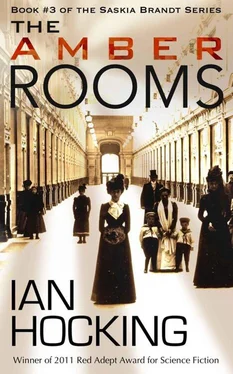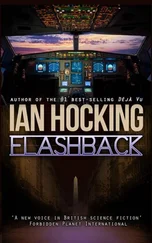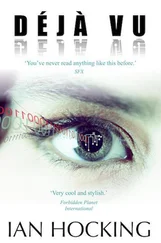Well, I probably would have benefitted from talking to a librarian but I decided to start with Amazon. I know that they have lots of used paperbacks that I could search easily. That’s how I came up with ‘Five sisters: Women against the Tsar’. However, I did use the library here at Canterbury Christ Church to find books on communist theory (…which reminds, I also downloaded audiobooks from Audible.co.uk on Marxism and long-term Russian history stretching all the way back to the Russ).
Does most of your research get conducted at home in front of your computer, say, or do you go elsewhere?
Largely in front of my computer or in my office. I picked up a couple of books from the library at Christ Church, but in the main everything came to me.
And to go back to talking to Roger Morris about Russia — can I ask, does a conversation like that take the form of an email conversation, or did you meet him face to face first? Is it a case of him recommending sources to you, or giving you information directly? And would you find that information (from another writer directly) more or less trustworthy, do you think, than from a textbook, say, or a first-hand account?
This was partly an email conversation but we also chatted at the launch of hot new book from a Devonian author. Then it was mostly email. I asked Roger for some recommendations — he came up with Orlando Figes’s book, ‘Natasha’s Dance’ — and also recommended ‘Five sisters’ to him. He didn’t give me any information directly, though he probably would have if I asked. I think Russia itself is too vast a topic to bother talking about it other email — particularly when you’re not sure what will turn out to be useful.
Over to the Devonian author…
When do you feel satisfied that you’ve done enough research?
I don’t think I’ve ever felt satisfied with research. There’s always something that you’ve handled wrong. With specific regard to a novel, where you’re dealing with the representation of lived experience, there’s no way everything is going to ring true. A phrase might be wrong; or a train line that you thought was there in 1904 wasn’t built until 1910, or some such. I’d go as far as to say that if I ever had that feeling of satisfaction, I’d be losing my grip on reality. …Unless the novel was heavily autobiographical, of course.
So when might you stop researching, even though there’s no moment of satisfaction?
Hmm, that’s a good question. I would never stop volitionally. It would come when the book is published. Since the book we’re talking about — The Amber Rooms — is not yet published, I haven’t really stopped researching it even though the book has been mellowing on my hard drive for a year. There’s always something rattling around my head and that I realise I can put it in. Typically, I realise it would be cool if I could include a particular fact — such as the bridges of St Petersburg rising in unison during the night, or the horse-drawn taxi drivers standing up and bowing to the road-side shrines as they clatter past — and then go back to the book and drop it in.
Also, what would you recommend to a new author as a method of conducting research?
Zoinks — that’s a difficult one. I think research is a battle on many fronts. You need to use physical and nonphysical sources, curated and non-curated…but the most important thing is to start broadly and get narrow later. Follow your interests because these will probably be informed by an idea of where your story will go, even if you’ve not consciously aware of it. In terms of research in general, you must do it — because of all the things that might lead to writer’s block, running out of ‘road’ will be the thing that inhibits the writing more than anything.
During his writing career, Ian Hocking’s fiction has been published both in print and online. His first novel, Déjà Vu, received the 2011 Red Adept Award for Science Fiction.
‘A new voice in Brit SF that we should all be taking an interest in.’
Joe Gordon, Forbidden Planet International
In the Saskia Brandt Series
Déjà Vu: A Technothriller (Book 1)
Flashback (Book 2)
Comedy
Proper Job: A Romantic Comedy
Literary Short Fiction
A Moment in Berlin and Other Stories
Summary of Déjà Vu , Saskia Brandt Book One
It is 2023. Saskia Brandt of the Berlin Förderatives Investigationsbüro (FIB) has just solved the most baffling murder of her career. Over the past twelve hours, she has followed clues that lead only to one conclusion: she is the murderer. Upon this realization, her boss appears to explain that her violent criminal past has been erased from her mind and a chip implanted in her brain. This chip imposes a donor personality, a blank slate on which the FIB can draw any skill or knowledge. “It takes a murderer to catch a murderer,” her boss says, and congratulates her. She is now a full Kommisarin.
Saskia’s first assignment after this revelation is to find Professor David Proctor. In 2003 he was suspected — but never convicted — of bombing a Scottish research institute. Now he has detonated a second bomb in the same location. This bomb has killed a man called Bruce Shimoda, David’s former research partner. Now David is on the run.
Saskia flies to Edinburgh. At the airport, she meets a middle-aged Scottish detective called Jago. They verbally spar with each other and become friends. Saskia learns that David was briefly held in custody following the murder but escaped with the aid of an unidentified woman. Many suspect this woman to be his daughter, Jennifer, who is a world-leading physicist working in a secret research centre in Nevada called Met Four Base, where she presides over Project Déjà Vu. Only days have passed since she successfully sent the first matter through time using Project Déjà Vu’s machine.
The chase is on. Saskia tracks David with a combination of luck, nerve, implanted skill, and gut instinct. Throughout the chase, she must tamp down the flickers of strangely familiar associations and fragments of random memories in a mind that is supposed to be entirely blank and new, designed and controlled only by the FIB. They meet at night at Heathrow after a pursuit across the remote Scottish and British countryside. David manages to reach the aircraft and Saskia boards it as it takes off.
En route, Saskia and David connect. She tells him her story, and makes clear her determination to take her own life should her past mind, that of a murderous criminal, take over. David warms to Saskia but knows that a return to Britain means jail. He threatens to use his electronic companion, a credit-card-sized computer called Ego, to take over Saskia’s brain chip and effectively switch her off. Saskia’s hand is forced. Reluctantly, she helps him escape the American authorities upon landing and they go on the run, destination Nevada and Project Déjà Vu. David doesn’t know why he has to go there, but the same mysterious woman who helped him escape custody after the bombing of the lab has, cryptically, instructed him to do so.
Jennifer surprises both David and Saskia by asking them to follow her into the research centre. Then David reveals what he has known since meeting Saskia on the aeroplane to the US: that the woman who helped him escape from custody in Scotland was Saskia Brandt herself. Saskia is incredulous at first. She cannot believe that there is an older version of herself walking around the world of 2023. It has echoes of her first case as a Kommissarin: the mastermind of the crime under investigation has turned out to be herself.
Читать дальше












